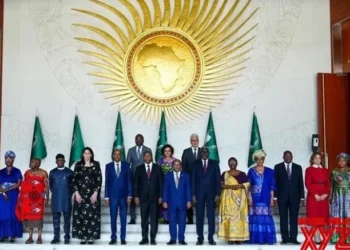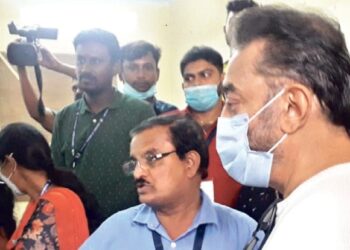Prime Minister Narendra Modi on Wednesday said OSP guidelines that were liberalised in November last year have been simplified further to encourage the country’s BPO industry and will lead to greater ease of doing business and regulatory clarity.
He said in a tweet that the government’s decision will further reduce the compliance burden and help the country’s tech industry.
“In order to encourage our BPO industry, OSP guidelines that were liberalised in November 2020 have been simplified even further, offering greater ease of business and regulatory clarity. This will further reduce the compliance burden and help our tech industry,” he said. The Centre on Wednesday removed the distinction between domestic and international OSPs (Other Service Providers) allowing BPO centres with common telecom resources to serve customers located worldwide including in India.
Addressing a press conference, the Union Minister for Electronics and Information Technology Ravi Shankar Prasad said the guideline issued today will very extensively liberalise the other service providers’ guidelines. “The guideline is revolutionary in nature that will make India a very favourable destination for the expansion of voice-related BPO centres. These guidelines are designed to put India as a very central and serious player in the entire international BPO and voice-related industry,” he said.
Prasad said India’s BPO industry is one of the largest in the world. “Today India’s IT-BPM industry stands at USD 37.6 billion (2019-20), which is Rs 2.8 lakh crore approximately, giving job opportunities to lakhs of youths in the country. Further, it has a potential for double-digit growth reaching up to USD 55.5 billion that is Rs 3.9 lakh crores by 2025,” he said.
“The distinction between Domestic and International OSPs has been removed. A BPO centre with common Telecom resources will now be able to serve customers located worldwide including in India. EPABX (Electronic Private Automatic Branch Exchange) of the OSP can be located anywhere in the world. OSPs apart from utilising EPABX services of the Telecom Service Providers can also locate their EPABX at Third-Party Data Centres in India,” he added. With the removal of the distinction between domestic and international OSP centres, the interconnectivity between all types of OSP centres is now permitted.
Prasad said DoT has already exempted data-based services from OSP regulations. “In addition, the regulations exempted OSPs from the requirement of any registration. Also, no bank guarantees were to be furnished. Work from home and work from anywhere was also permitted,” he said.




















